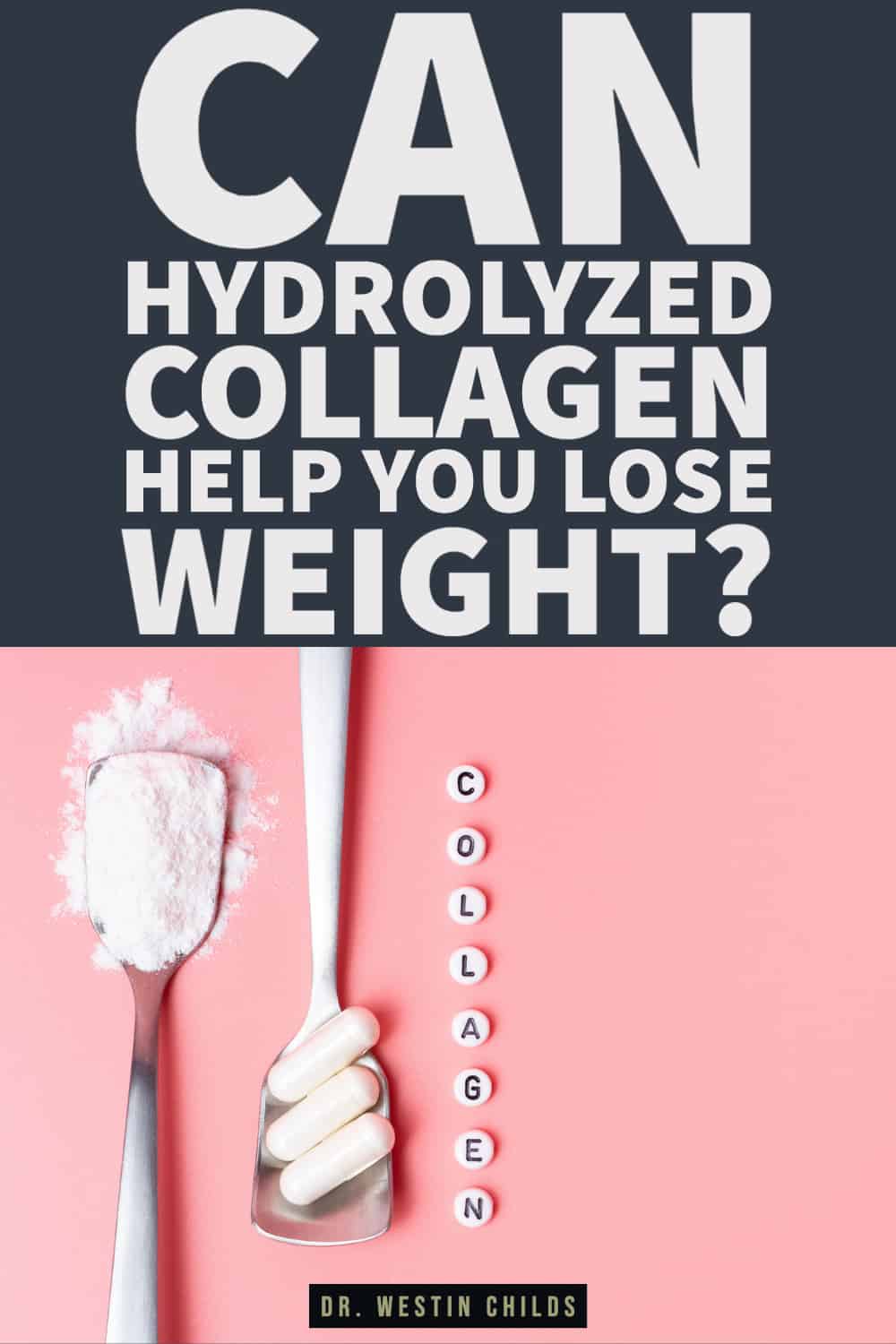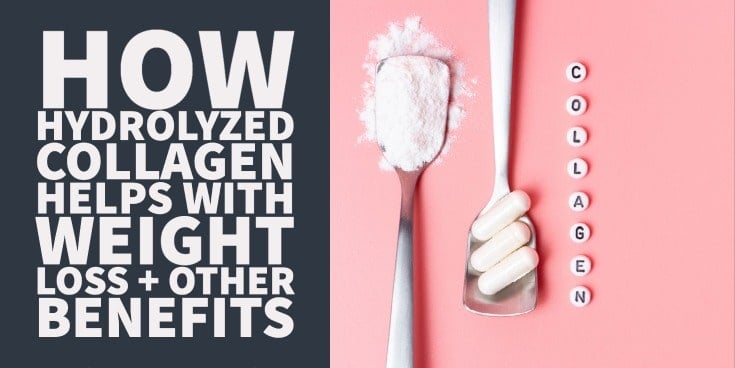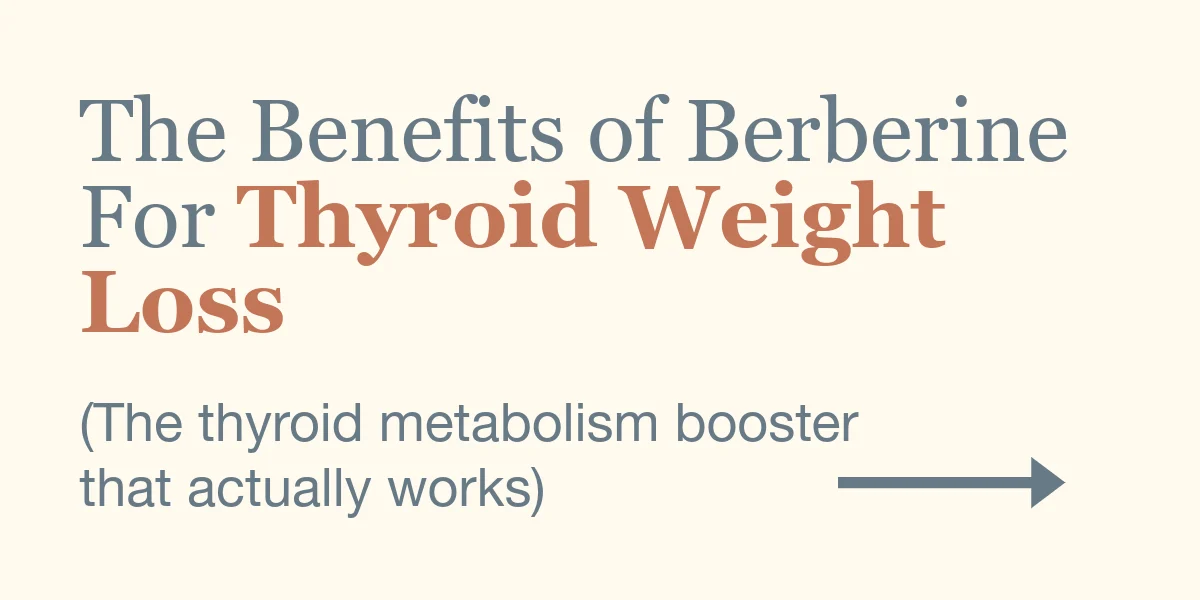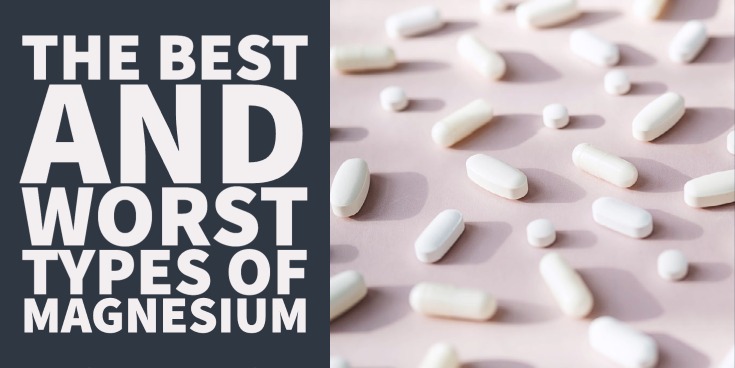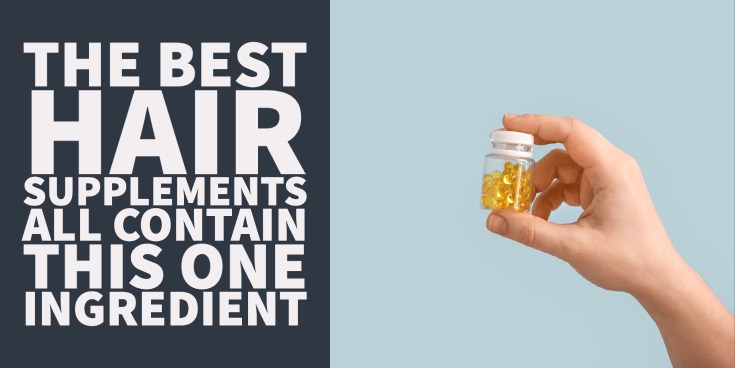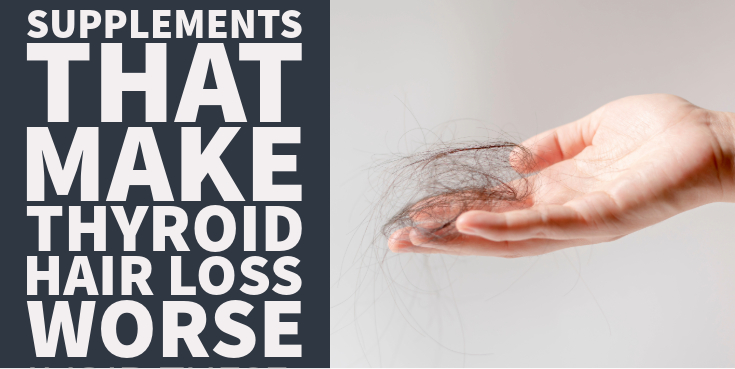Take your daily supplement regimen to the next level with hydrolyzed collagen.
This powerful supplement has been clinically shown to increase hair growth, help with weight loss, and slow down & reverse the aging process.
Collagen is a special form of amino acid and most people simply don’t get enough of it in their daily diet.
Learn why hydrolyzed collagen is the best form of collagen to start out with and how to use it properly in this guide:
What is Hydrolyzed Collagen?
Before we talk about the specifics of hydrolyzed collagen we need to talk about collagen in general.
First of all, collagen is an amazing supplement and represents a supplement that has previously been untapped by most people.
And this is rare, especially in the world of supplements.
Most people have at least TRIED a supplement (or tested it) to see if it works.

But chances are high you’ve probably never heard about collagen or know why it’s so beneficial.
Collagen is basically a protein and is found in high concentrations in your muscles, gastrointestinal tract, skin hair follicles, and nail beds (1).
What this means for you is that collagen plays a very important role in the integrity and structure of these tissues.
Low levels of collagen cause specific symptoms ranging from leaky gut, hair loss, nail breakage (2), and decreased muscle mass (and weight gain) just to name a few.
So why does supplementing with collagen help so many people?
The real reason is that most people are deficient in collagen and certain amino acids due to their diet!
Unless you are consuming bone broth you are most likely deficient.
Collagen is rich in certain amino acids like proline, glycine, and glutamic acid (3) that just aren’t found in our natural diet.
This leads to a deficiency that can cause the symptoms above but also leads to premature aging.
We will go over more of the benefits of using collagen below so you can jump ahead if you want to, but let’s spend some time talking about hydrolyzed collagen…
So what is hydrolyzed collagen?
In the most basic sense, you can think of hydrolyzed collagen as a form of collagen that is highly absorbable, highly dissolvable, and ready to mix.
The hydrolyzed process creates proteins and amino acids that are broken down into smaller parts which makes this formulation of collagen easy to absorb and easy to add to foods.
It’s also especially helpful for those with gastrointestinal issues or those with low stomach acid.
Why?
Because these are the people who will have a hard time absorbing gelatin or capsule forms of collagen!
While the amino acid profile of hydrolyzed collagen is considered non-essential (meaning your body can create these amino acids from other proteins in the body) that does NOT mean you are getting enough.
The conversion and creation process of these non-essential amino acids requires precursors and enzymes which require nutrients and near-zero inflammation levels.
In states of inflammation, hormone imbalance, or nutrient deficiency there is a high chance your body is not catalyzing these reactions at 100%.
This means that you will have suboptimal collagen levels even if you consume other proteins (through protein shakes or food sources).
Hopefully, this makes sense and helps you understand why collagen stands to be so beneficial for many people.
This brings us to the next point…
Weight loss and collagen.
Does it help with weight loss?
As I mentioned previously this supplement is untapped and probably not very well known, but the truth is that it has been shown to help reduce fat mass and increase fat-free mass (4).
Studies have shown that using collagen for as little as 12 weeks can reduce fat mass in your body by up to 10 pounds (5) and simultaneously increase fat-free mass (muscle mass) by up to 6 pounds.

This may not sound like much until you realize that increasing the muscle mass in your body also increases your metabolism.
Your metabolism (which is dependent upon your muscle mass) is responsible for burning the majority of the calories you burn in a day while simply living, moving, breathing, and thinking.
Anything that increases this at baseline works tremendously in your favor if you are interested in weight loss.
Does this mean that you should use collagen as a weight loss tool without changing your diet or adding exercise?
No, not at all.
But it does mean that there is another added benefit to using collagen and that is a potential increase in metabolism and a potential drop in fat mass.
What you need to realize is that muscle has a weight and so does fat.
If you lose fat in your body but gain the same amount of muscle, then the scale may not actually go down.
But that’s ok and you actually WANT this.
When most people say they want to lose weight, what they really mean is that they want to lose FAT.
And this is exactly how collagen works.
What’s also interesting is that collagen, because it is a protein, can be combined with exercise for added benefits.
So in this case, the combination of collagen plus strength training may further improve the gains in muscle mass and metabolism.
Studies have again shown that using collagen for 12 weeks increased muscle strength significantly, and keep in mind that this study was done in people older than 55 years old (6).

For weight loss don’t forget to combine this supplement with other supplements that also help with weight loss like alpha lipoic acid, berberine, and fish oil.
Tips for using Hydrolyzed Collagen
Below I give my recommendation for the best hydrolyzed collagen supplement (so feel free to skip down to that), but before we talk about the supplements we should spend some time on how to properly take collagen to get the most benefit.
One of the best parts about using hydrolyzed collagen is that it is RAPIDLY absorbed and really doesn’t have an unpleasant taste.
This means that you can rather easily add collagen to pretty much any food or meal.
But beyond these tips there are other tips you might want to consider when using collagen:
#1. Put it in your morning smoothie
One thing you should consider doing if you haven’t already is switching out your protein powder in favor of real whole-food protein.
You can substitute whey-based protein powders for natural protein sources like hemp hearts, chia seeds, and collagen powder.
This allows you to get a more natural amino acid protein profile in your smoothies and reduces any issues with whey-based protein.
Remember that whey protein can still cause issues in many people because it is a dairy product.
If you have any GI issues it’s always worth a trial of reducing whey protein in favor of real whole-food protein to see how you tolerate it.
#2. Add it to your coffee or tea
While I’m generally not a fan of recommending daily coffee, it is possible to dissolve your collagen in your morning coffee.
It’s important to realize that because collagen is a protein-based product it will break your fast – so remember that if you are doing bulletproof coffee with intermittent fasting.
One of the benefits of hydrolyzed collagen is that it is easily absorbed and doesn’t have a strong taste so it can be hidden in coffee or tea and provides a nice boost if you choose to use that route.
#3. Take at least 1-2 tablespoons per day
In terms of dosing it’s important to start with around 1 tablespoon per day with a goal to increase to around 2 tablespoons each day.
Using anything less will not provide you with the amino acid profile that your body needs.
#4. Be consistent with your use
This is a product that should be used DAILY.
You should also be prepared to use up to 2 tablespoons each day for at least 8 weeks in order to see the most benefit.
#5. Use more if you have GI issues
Special attention should be given to those who have gastrointestinal issues.
If you have any of the following please note you may need to use collagen for longer periods of time and at higher dosages:
- Irritable bowel syndrome
- Chronic constipation
- History of gas or bloating
- Acid reflux or GERD
- Intestinal dysbiosis
- Leaky gut or increased intestinal permeability
#6. Combine Collagen with other supplements for boosted effects
While collagen is a great supplement, you can get even better results if you combine collagen with other supplements.
Remember that a “layered” approach to supplements is always the best.
If your primary goal is weight loss then you’ll want to use collagen in addition to other therapies such as diet, exercise, and stress reduction.
You can also combine collagen with other supplements as well.
Supplements such as protein powder and probiotics can be added to your daily regimen to help with weight loss.
Each supplement works in a slightly different way to help with weight loss.
Collagen may help promote satiety while helping to reduce fat mass.
Probiotics may help improve the composition of your gut and protein powder may help reduce your appetite (7).
In this way, you are getting an enhanced effect as these supplements work in different ways to help promote fat loss.
#7. Use it in conjunction with your exercise routine
If you decide to use collagen make sure to also use it in conjunction with exercise!
Specifically, I’m talking about weight-bearing exercise or resistance beyond that of gravity.
The reason for this recommendation is that studies show a significant boost to muscle mass and fat mass when you combine these two therapies.
Conclusion
Hydrolyzed collagen has many benefits and might be unknown to the majority of people out there.
Because of this, it may be one of the best supplements you’ve never heard of.
You can use hydrolyzed collagen to help improve the quality and texture of your skin, help you with weight loss, and even help heal your intestinal lining.
Remember if you want to start supplementing with collagen I recommend starting with the hydrolyzed form (but you can’t go wrong with peptides if you choose that route either).
The logic is that this form is easily absorbed and really doesn’t have a taste.
This means you can hide it in pretty much any drink, smoothie, or recipe.
Now it’s your turn:
Are you using hydrolyzed collagen?
Has it been working for you?
Why or why not?
Leave your comments below!
Scientific References
#1. https://www.ncbi.nlm.nih.gov/pubmed/23949208
#2. https://www.ncbi.nlm.nih.gov/pubmed/29144022
#3. https://www.ncbi.nlm.nih.gov/pubmed/28929384
#4. https://www.ncbi.nlm.nih.gov/pmc/articles/PMC5118756/
#5. https://www.ncbi.nlm.nih.gov/pmc/articles/PMC4594048/
#6. https://www.ncbi.nlm.nih.gov/pmc/articles/PMC4594048/
#7. https://www.ncbi.nlm.nih.gov/pmc/articles/PMC3295702/
